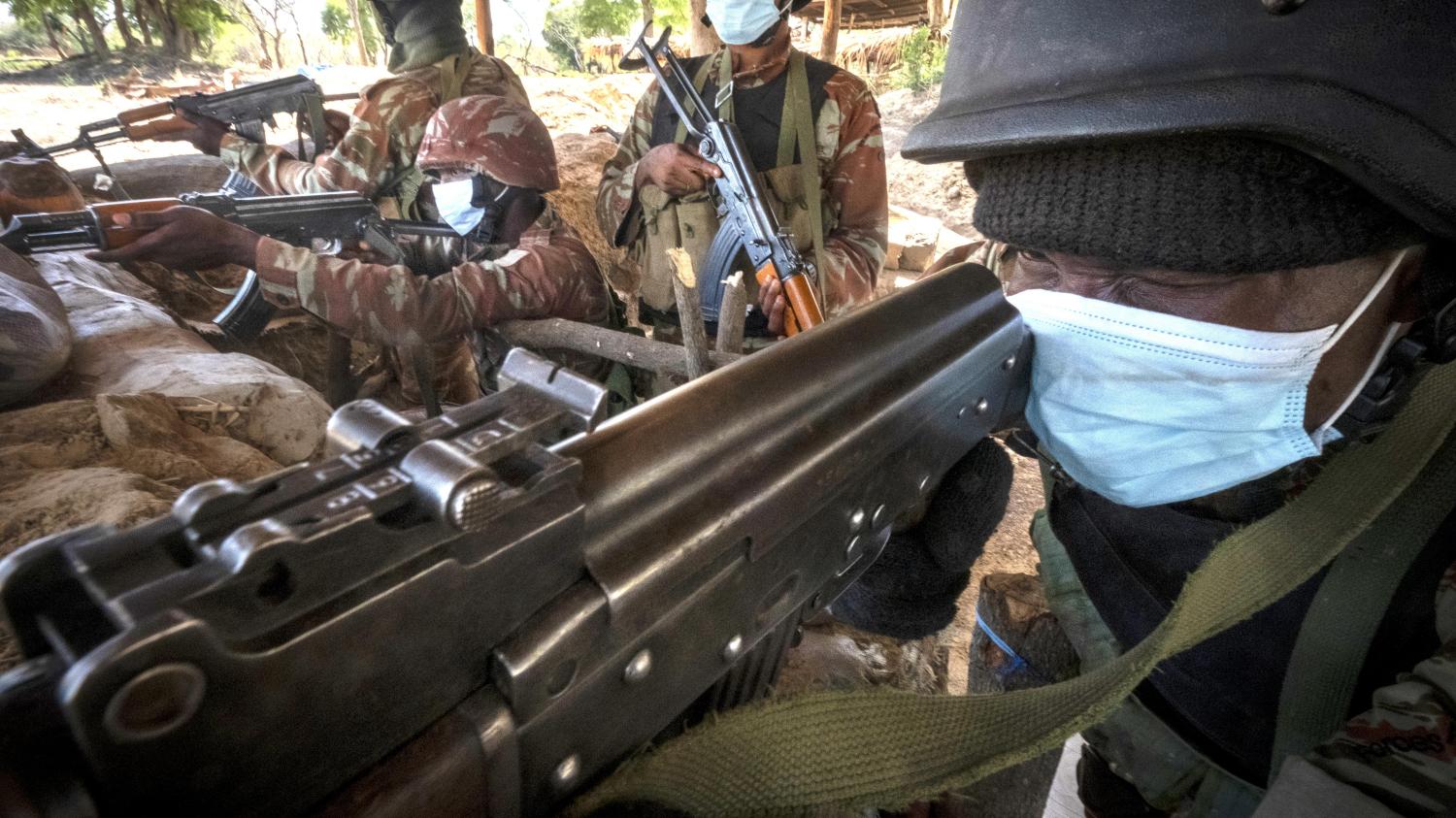In a region plagued by violence and instability, Benin is defying the odds by successfully repelling jihadists infiltrating its northern territories from neighboring Burkina Faso. The Times was granted exclusive access to military bases in Benin’s northern region to witness firsthand the country’s resolute efforts in countering the jihadist threat.
Benin, a West African nation with a population of 13 million, is confronting the jihadist groups, some of which are linked to Islamic State and al-Qaeda, without external assistance. The country’s ability to combat these militants is of great significance, not only for its own people but also for the entire region. Analysts warn that if jihadist groups gain a foothold in more West African countries, it could trigger further turmoil throughout the region, threatening the stability of states such as Ghana, Ivory Coast, Togo, and Benin.
The Times visited three out of the eight military bases in Benin’s north, marking the first time a Western journalist has been allowed entry into the region since the tragic kidnapping of two French tourists and the killing of their guide in Pendjari National Park in 2019.
Through a comprehensive military effort that involves tanks, helicopters, and the recruitment of over 5,000 soldiers, Benin has effectively tackled the continent’s most severe jihadist problem, which has already crippled Mali and Burkina Faso. Lieutenant Colonel Mathieu Hessou proudly stated, “We have secured our country,” emphasizing the strategic objective of preventing any attacks in 2024.
In December, the Beninese government allocated £105 million to strengthen its security forces after establishing an anti-jihadist task force called Mirador in early 2022. Mirador’s primary objective is to repel jihadists from the country’s two red zones: Pendjari National Park and Parc W. For years, these parks have served as havens for bands of bandits and jihadists, facilitating the replenishment of supplies and the connection of criminal networks between Nigeria and Burkina Faso.
Colonel Faizou Gomina attributes the decline of Mali and Burkina Faso to an influx of arms and the lack of state capacity. He emphasizes the importance of controlling the trafficking of weapons in the region and acknowledges Benin’s role in preventing arms smuggling through its northern territories. At the Boiffo base in Parc W, the government has constructed a fortified structure consisting of four sandbag walls, watchtowers, and trenches to secure the border area with Nigeria. Jean Olou, the military commander of Parc W, states, “We are organizing a system of defense to protect local civilians and halt the movement of terrorists and bandits.”
According to officials, the establishment of these eight military bases has significantly reduced the mobility of terrorists. Each base accommodates between 50 and 200 soldiers and is supported by eight smaller bases strategically located for patrols in high-risk areas. While the bases in the eastern part of the country focus on apprehending traffickers, those near the border with Burkina Faso defend against incursions into Benin’s sovereign territory.
Although Benin experienced its first attack on its soil in November 2021 in Kourou Koalou, the frequency of attacks has escalated rapidly since then. Burkina Faso’s government has largely neglected the areas bordering Benin, enabling terrorists to stage regular incursions into the coastal West African state. Benin has witnessed 54 incidents between January and mid-April, making it the African country with the sharpest increase in terrorist attacks. Most of these attacks involve small groups of assailants raiding army bases using light weapons like AK44s.
Worryingly, militants have shifted their tactics to target civilians, a distressing development considering the thousands of lives already lost across the border. In May, attackers killed 12 farmers in a nighttime raid on the town of Koabagou.
Benin’s approach to combatting jihadists stands in contrast to that of Mali, which initially relied on French troops and later turned to the Russian Wagner Group of mercenaries. As France withdraws from the region, concerns arise that Russia may seek to fill the security void as instability spreads.
At a small town near the Boiffo base, Daouda Sané, a young resident, expresses both fear and hope. He worries that terrorists may reach his village but takes solace in the fact that it is Benin, not Burkina Faso, where efforts to counter the jihadist threat are in motion.
Benin’s remarkable efforts in beating back jihadists against all odds serve as a beacon of hope in a region grappling with instability. As the country continues its resolute stance, the international community must recognize and support Benin’s endeavor to safeguard its people and preserve regional stability.








































admin in: How the Muslim Brotherhood betrayed Saudi Arabia?
Great article with insight ...
https://www.viagrapascherfr.com/achat-sildenafil-pfizer-tarif/ in: Cross-region cooperation between anti-terrorism agencies needed
Hello there, just became aware of your blog through Google, and found ...